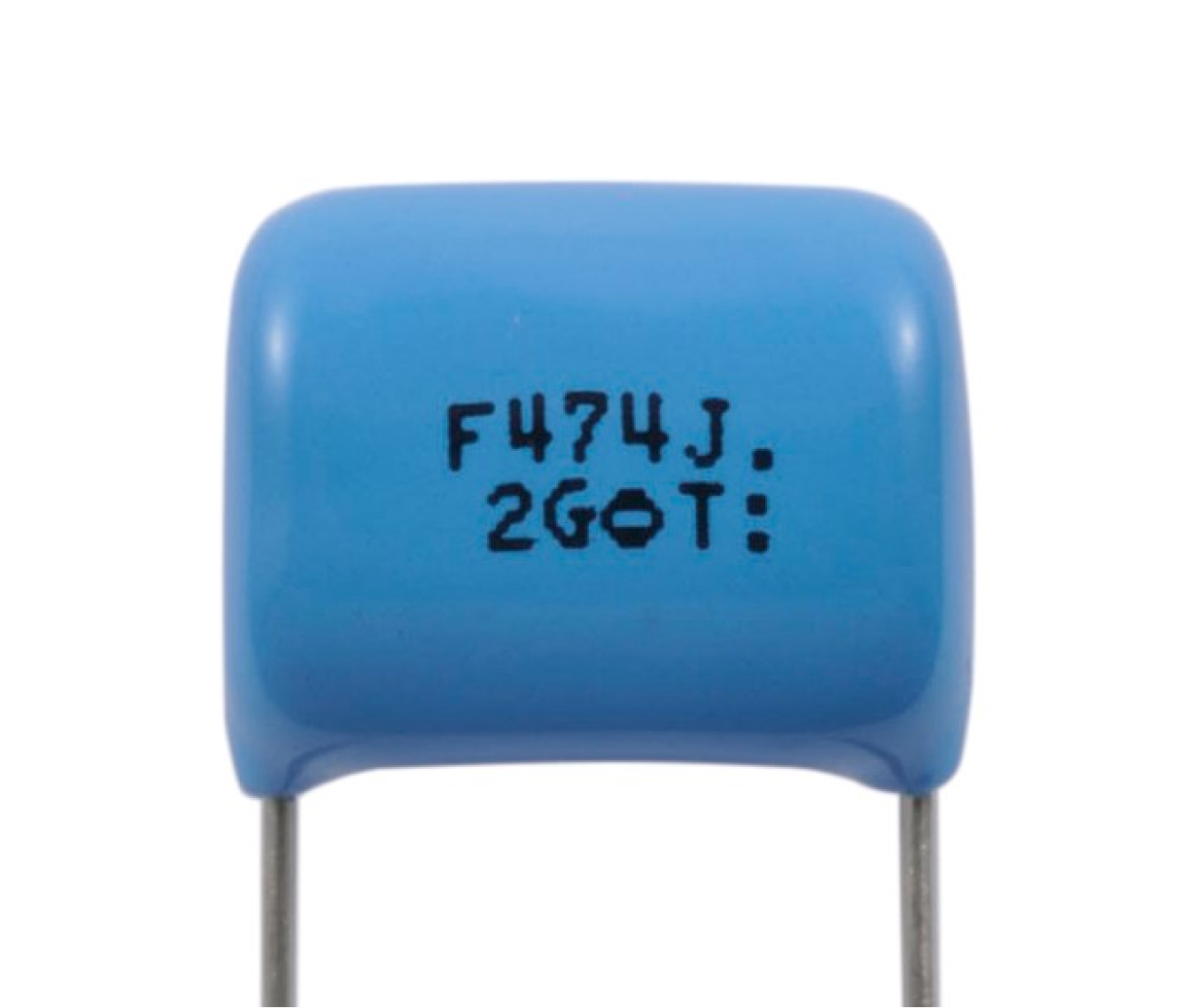7U5B335JUSBNEW
Specifications
| Type | Resin-coated lead wire |
|---|---|
| Current | AC |
| Rated Voltage(V) | 125 |
| Voltage Proof | Between Terminals | Rated Voltage×150% 60 s |
|---|---|---|
| Between Terminals and Case | Rated Voltage×200% 2~5 s |
| Voltage Proof Between Terminals | Rated Voltage×150% 60 s |
|---|---|
| Voltage Proof Between Terminals and Case | Rated Voltage×200% 2~5 s |
| Insulation Resistance | 100VDC 60s More than 50000ΩF |
|---|---|
| Temperature Range(℃) | -40~85(105) |
| Capacitance(µF) | 3.3 |
| Capacitance Tolerance(%) | ±5 |
| Dielectric Tangent(tanδ) | 0.0015 or less |
| Dielectric Material | MPP |
| L(mm) | 25.5 |
| H(mm) | 24.5 |
| T(mm) | 16.5 |
| Lead Pitch | 7.5 |
| Shape of Lead Wire | Forming(TypeB) |
| Packaging | Bulk |
Dimensions
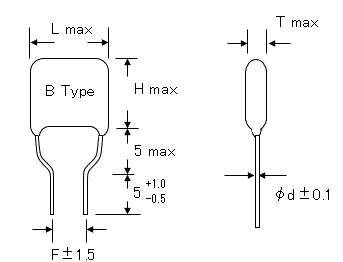
Caution for proper use
Plastic film capacitors use organic films for their dielectrics, thus the capacitors may fume of flame, depending on the circuit conditions they are in, when they are damaged by applying over-voltage or overcurrent.
-
Circuit Design
- ① Please use capacitors within the range of their characteristic ratings, only after confirming their operating and mounting environments.
- ② In case of selecting a capacitor, please select the most suitable one which fits to your operating conditions.
- ③ Capacitors used for Across-The-Line, Line-By-Pass and Antenna-Coupling to suppress noises in an equipment, the capacitors need to be approved by overseas Safety Standards or 'Electric article security method' by Ministry of international Trade and Industry.
-
④ Do not conduct a rapid charge and discharge ahead of rating to a capacitor which may lead to characteristics degradations or breakdown of the capacitor.
Pulse permissible current
In case of use other than sine wave, please use both of pulse current & effective current under permissible current.
※Please contact us in case pulse cycle exceed 10,000 times
- ⑤ An applying voltage to a capacitor, including the peak of surge and ripple voltage (D.C. voltage + A.C. Peak),cannot be exceeded the rating voltage.
-
⑥ Do not apply a current over its permissible level. Also, make sure the atmosphere temperature and self heat rise of a capacitor since a permissible current can be restricted by those factors.
Use under atmosphere temperature+self heat rise(within specification), Thus please confirm surface temperature of capacitor should be within usage range of temperature.
Rated voltage derating to operating temperature
Code :1A, 2A, 6C, 6D, 6V, 6S .......... ①
7Z ................................................... ②
7Z ................................................ ②
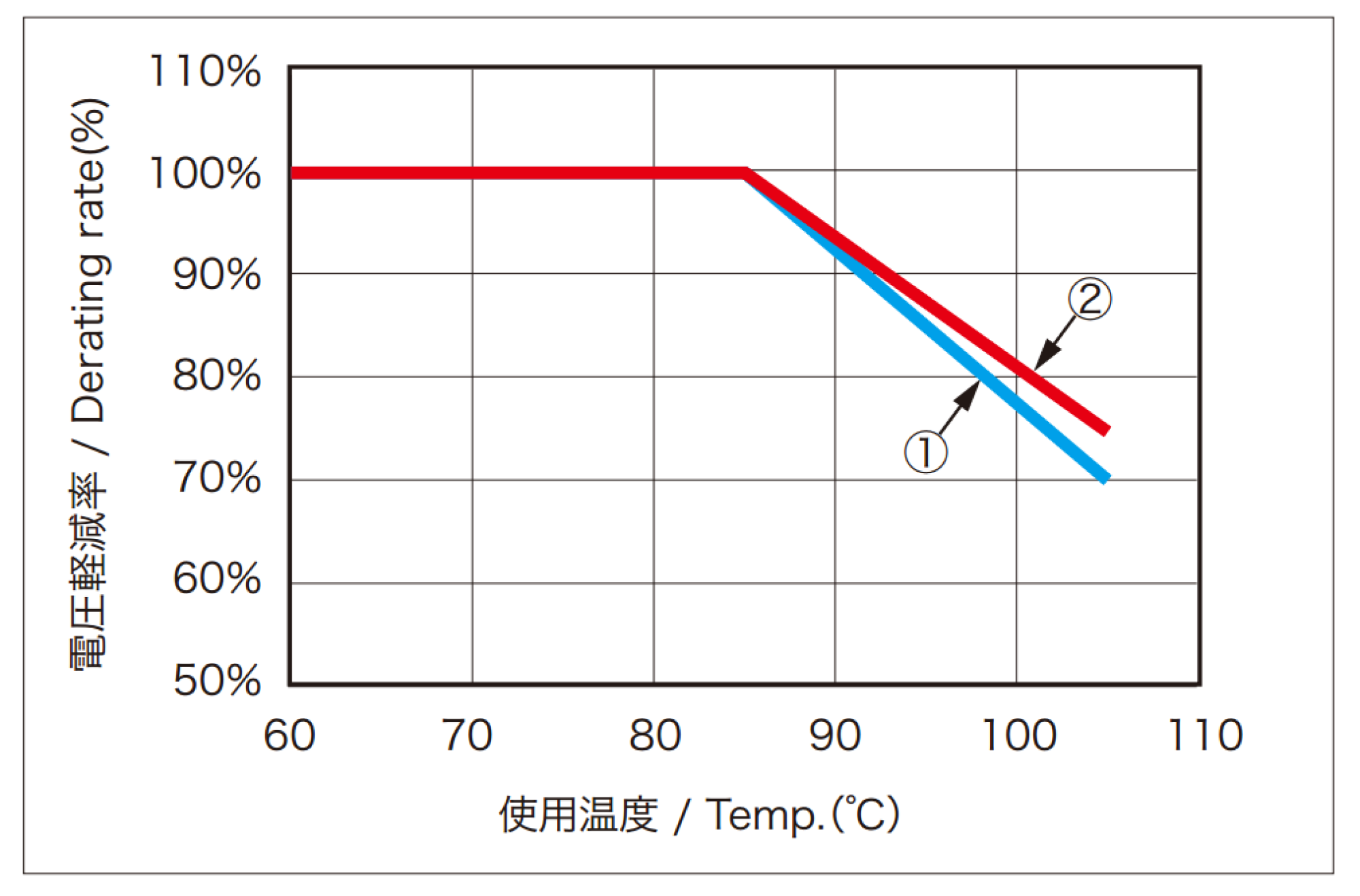
Self heat rise (Please refer below parameter in case of no wind/fan conditions)
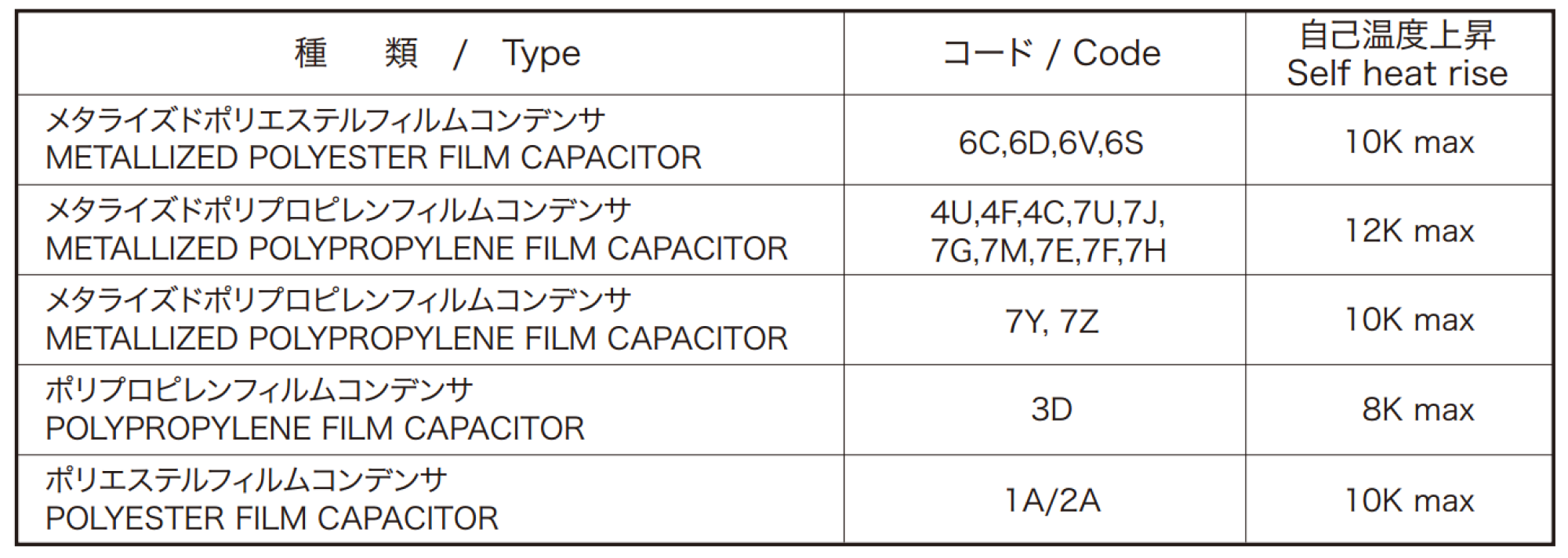
- ⑦ Please contact us for further details, if mechanical resonance (hum) occurs from a capacitor.
-
Mounting
- ① Do not apply any exceeding tension or torsion to lead wires of a capacitor, during the mounting procces.
- ② Please mount a capacitor where it dose not contact any other heating parts, high voltage parts and other parts.
-
③ Please conduct soldering process by strictly following the specified conditions.
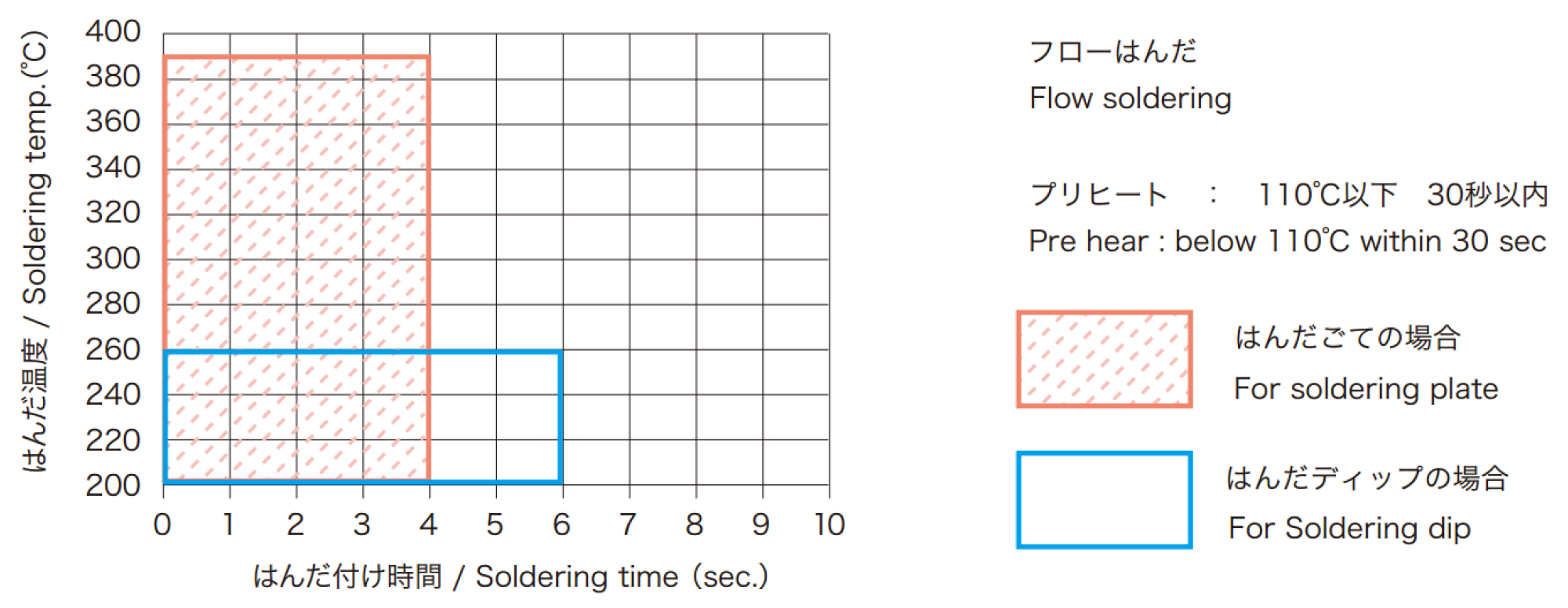
- ④ For the cleaning after the soldering, please use alcholic solvents and perform it quickly.
-
Case of an emergency
- ① If a fuming, a flaming or an usual smell occurs from an equipment during its usage, please cut off the power supply by switching it off, pulling the plug out or other methods.
-
Storing and handling
-
① A storage needs to be kept indoors at -10 ~ 40℃ and relative humidity of under 85% without any sudden temperature changes, direct sunlights and corrosive gas around.
a) Guarantee period is six months after delivery with packing condition.
b) Guarantee period is three months after opening packing box.
※Delivery after six months(packing conditions), three months(after opening packing box), solderbility of lead wire might slightly down due to oxidization. Please confirm solderbility before use it.
- ② Do not apply and exceeding vibration, shock (dropping) and pressure.
-
① A storage needs to be kept indoors at -10 ~ 40℃ and relative humidity of under 85% without any sudden temperature changes, direct sunlights and corrosive gas around.
-
Abandon
- ① In case of abandon capacitors, please seek for professionals who deal with the industrial wastes treatments.
-
Miscellaneous
- ① For further details of caution for proper use, please refer to EIAJ RCR-2350 or contact Taitsu.

